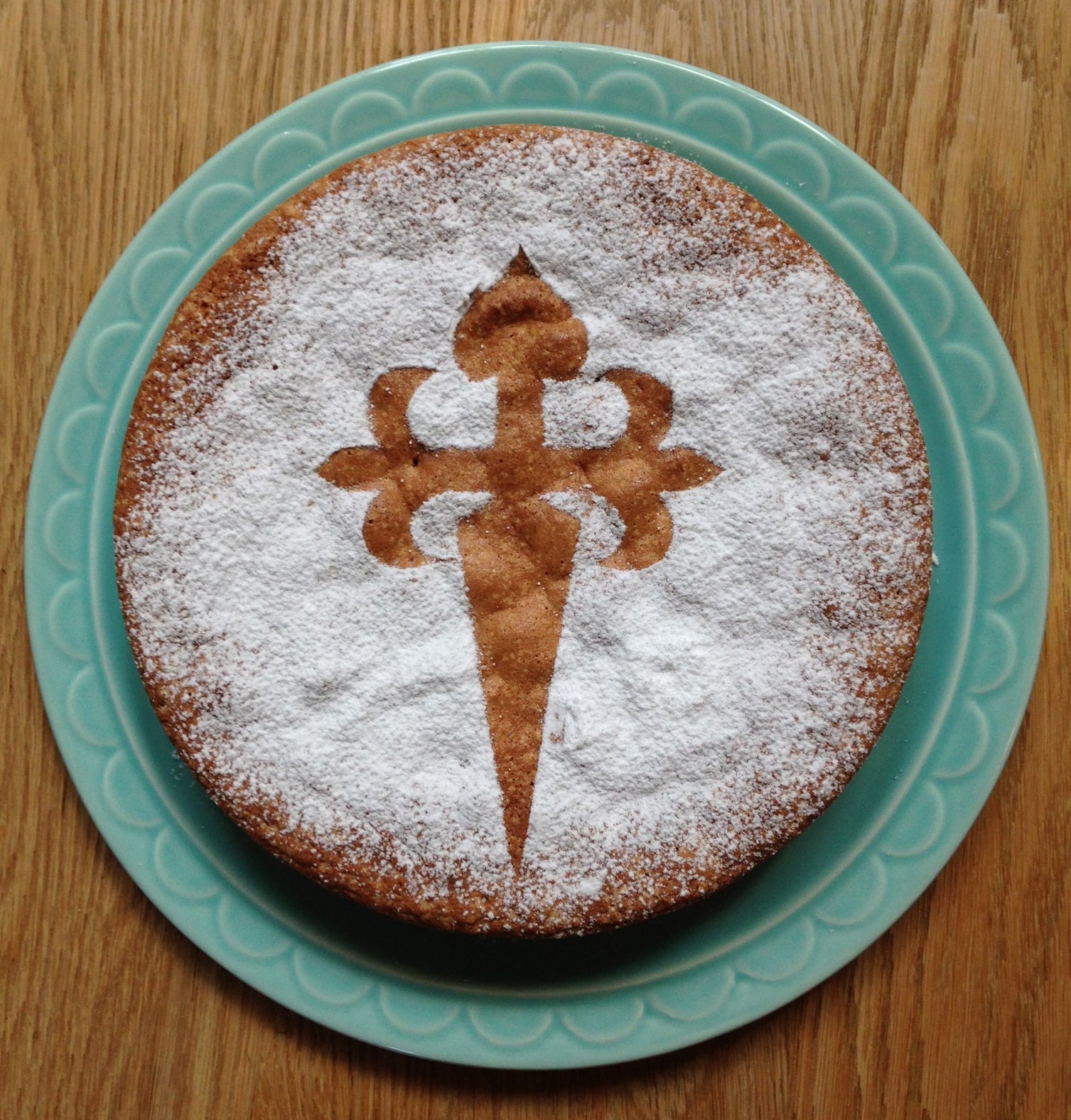 Tarta de Santiago would have to be my favourite almond-based, gluten free cake. It has a tender, citrus cake crumb and keeps extremely well, though I doubt it will bide much time on the kitchen table!
Tarta de Santiago would have to be my favourite almond-based, gluten free cake. It has a tender, citrus cake crumb and keeps extremely well, though I doubt it will bide much time on the kitchen table!
This recipe is by the celebrated cook, Claudia Roden, and can be found in her book “The Food of Spain: A Celebration," (Penguin, UK, 2012). I have substituted whole almonds (that required grinding) for ground almonds to save precious time. The cake is fêted in Southern Spain and has fascinating origins in religious traditions. Roden elucidates the cake’s origins as follows:
“This is a splendid cake which is normally made in a wide cake or tart tin and comes out low, but it is equally good as a thicker cake.
Pilgrims and tourists who visit the cathedral of Santiago de Compostela in Galicia, where the relics of the apostle Saint James are believed to be buried, see the cake in all the windows of every pastry shop and restaurant, decorated with the shape of the cross of the Order of Santiago. I have watched the cake being made in many sizes, big and small, over a pastry tart base at a bakery called Capri in Pontevedra. This deliciously moist and fragrant homely version is without a base.
When I suggested to a man associated with the Galicia tourist office that the tarta was a Jewish Passover cake, he dragged me to a television studio to explain all. The presenters liked the idea. The Galician city of A Coruña is on the Jewish tourist route. There is a synagogue and an old Jewish quarter there. Jews from Andalusia, fleeing the Berber Almohads' attempts to convert them, came to Galicia in the 12th and 13th centuries.”
Serves 10
250g ground almonds
6 eggs, separated
250g caster sugar
grated zest of 1orange
grated zest of 1 lemon
4 drops almond extract
butter to grease the cake tin
flour (or cornflour for gf version) to dust the cake tin
icing sugar for dusting the cake
Beat the egg yolks with the sugar to a pale cream with an electric mixer, then beat in the orange and lemon zest and almond extract. Add the ground almonds and mix very well.
With a cleaned mixer, whisk egg whites until stiff and fold into egg and almond mixture – the mixture is so thick you need to turn it over quite a bit into the egg whites. Grease a spring-form cake tin around 28cm in diameter (preferably non-stick) with butter and dust with flour or cornflour, then pour in the mixture.
Put the cake into an oven preheated to 180C/gas mark 4 for 40 minutes or until it feels firm. Let it cool before turning out. Dust the top with icing sugar. If you like, cut the shape of a Santiago cross out of paper and place it in the middle of the cake before dusting with icing sugar. Then remove the paper shape.



 Tarta de Santiago would have to be my favourite almond-based, gluten free cake. It has a tender, citrus cake crumb and keeps extremely well, though I doubt it will bide much time on the kitchen table!
Tarta de Santiago would have to be my favourite almond-based, gluten free cake. It has a tender, citrus cake crumb and keeps extremely well, though I doubt it will bide much time on the kitchen table!
